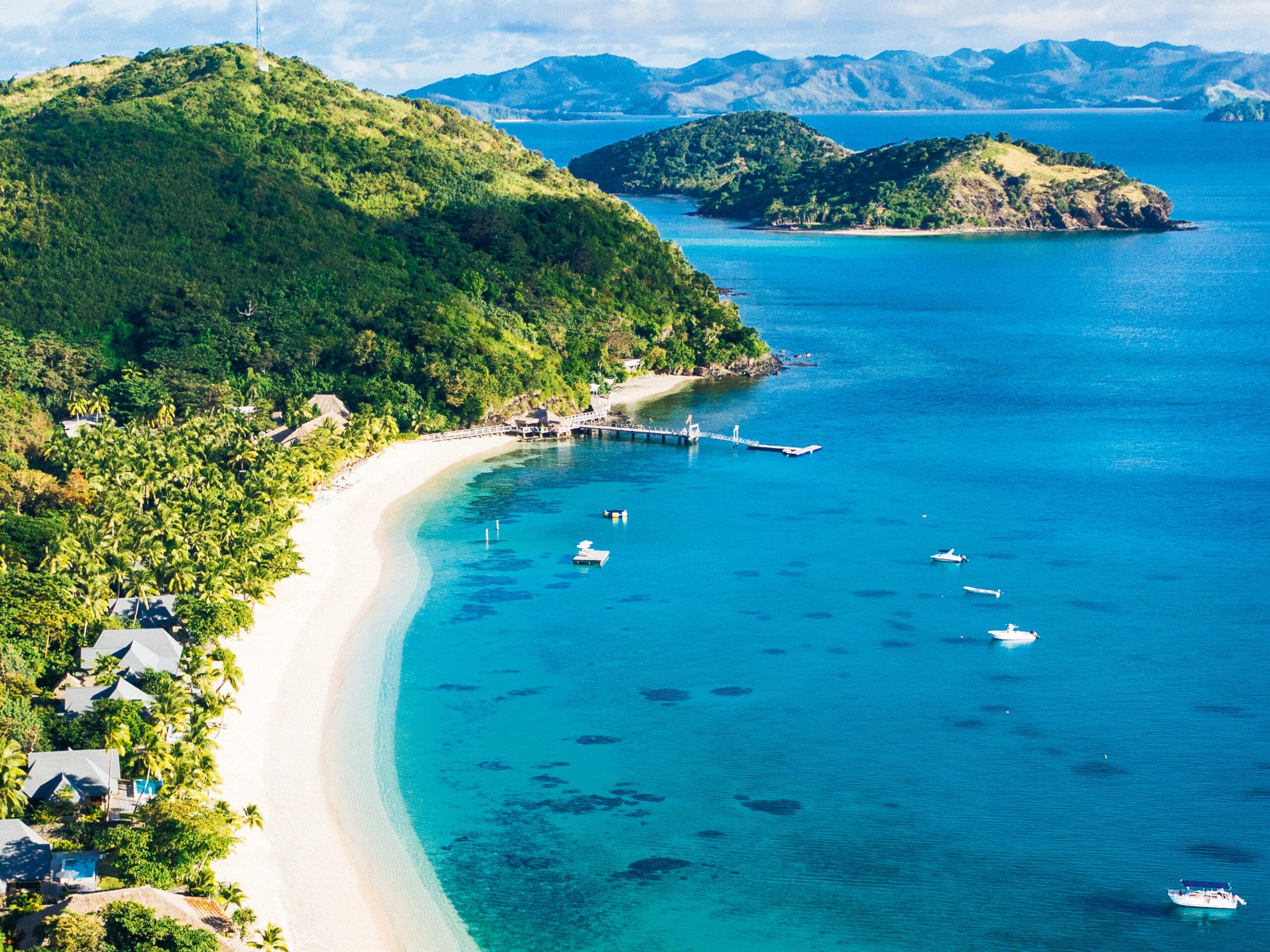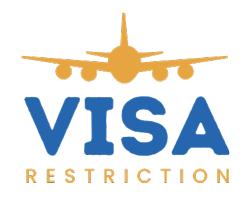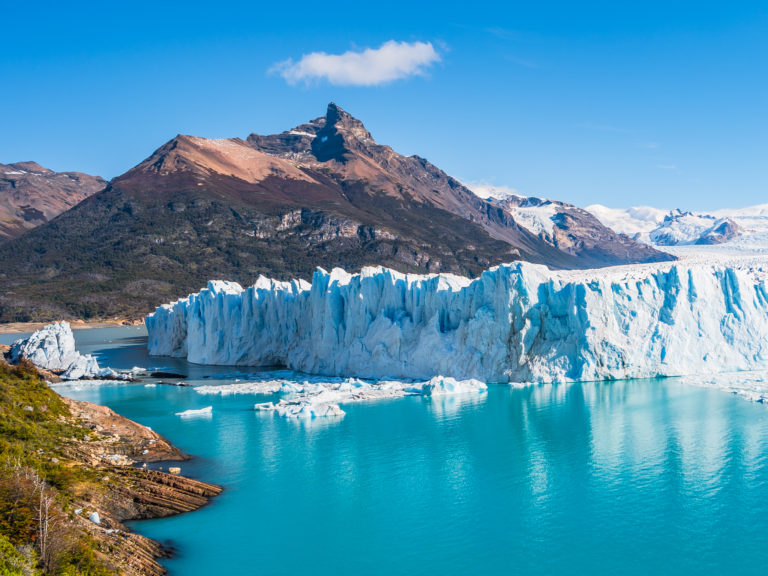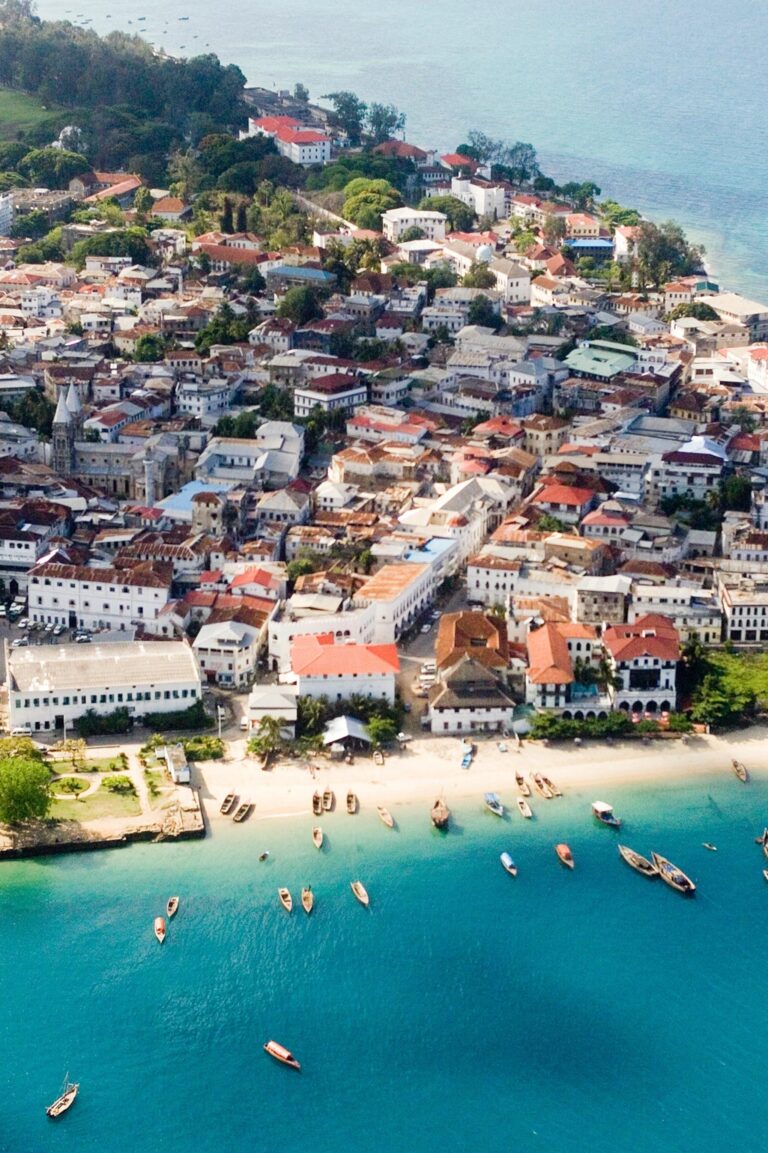Is Fiji Safe to Travel To: Island Safety Guide

Safety in Fiji
Official Safety Level
Fiji is currently listed as Level 1: Exercise Normal Precautions by the U.S. Department of State as of August 9, 2023 (Travel.State.Gov). This means that, generally, it’s safe to travel to Fiji. However, some areas may have increased risks, so it’s important to stay informed about specific locations within the country.
| Safety Level | Description |
|---|---|
| Level 1 | Exercise Normal Precautions |
| Level 2 | Exercise Increased Caution |
| Level 3 | Reconsider Travel |
| Level 4 | Do Not Travel |
Crime Rates and Precautions
Crime in Fiji is usually petty and opportunistic. Some common issues include credit card fraud, skimming, and petty theft. To stay safe, protect your PIN at ATMs, use ATMs located in banks or hotels, and carry only necessary cash. Always keep car windows up and doors locked to avoid theft (World Nomads).
| Crime Type | Precautionary Measures |
|---|---|
| Credit Card Fraud | Protect your PIN and use ATMs in banks or hotels |
| Petty Theft | Carry limited cash and secure your belongings |
| Car Break-ins | Keep car windows up and doors locked |
Foreign nationals, including British women, have been victims of serious sexual assaults in Fiji. Exercise caution when walking at night, particularly in cities, towns, and isolated areas. Women travelers should be especially vigilant when alone (Gov.uk).
For more information on safety in various destinations, you might also want to explore our articles on places like is it safe to travel to Mexico and is it safe to travel to Jamaica.
Keep informed and stay cautious during your travels.
Natural Disasters in Fiji
When planning a trip to Fiji, one important consideration is the country’s susceptibility to natural disasters, particularly cyclones.
Cyclone Season
Fiji experiences tropical cyclones predominantly from November to April. These cyclones can bring strong winds, heavy rainfall, flooding, and landslides, which can result in power outages, disrupted transportation, and road blockages (World Nomads). The impact of cyclones on infrastructure and daily life can be significant, so it’s crucial to stay informed and prepared.
Precautions for Cyclones
To ensure your safety during cyclone season, follow these precautions:
- Stay Informed: Keep up to date with local weather alerts and forecasts. Reliable sources include local news stations and meteorological services.
- Follow Local Guidance: Adhere to evacuation plans and any advice provided by local authorities. Authorities may enforce evacuation orders and other safety measures to protect residents and visitors.
- Prepare an Emergency Kit: Assemble a kit with essential items such as water, non-perishable food, a flashlight, batteries, medications, and important documents. This kit can be invaluable in the event of a power outage or other emergency situations.
- Secure Accommodations: Ensure that your lodging is built to withstand cyclonic conditions. Ask your accommodation provider about their safety protocols for cyclones.
- Plan Your Travel: Be flexible with travel plans. Flights and boat services may be disrupted during cyclones. Stay updated with your airline or ferry operator for any changes.
Here is a quick rundown of the measures visitors should take:
| Precaution | Description |
|---|---|
| Stay Informed | Follow local weather alerts and forecasts |
| Follow Local Guidance | Adhere to evacuation orders and safety advice |
| Prepare an Emergency Kit | Include water, food, flashlight, batteries, medications, documents |
| Secure Accommodations | Confirm your lodging can withstand cyclone conditions |
| Plan Your Travel | Be flexible, check with airlines and ferry operators for disruptions |
Cyclone season can be a challenging time to visit Fiji, but with proper preparation and vigilance, you can enjoy a safe and enjoyable trip. For more information on staying safe during your travels, you might find our other guides useful: is it safe to travel to mexico, is cancun safe to travel, and is it safe to travel to the bahamas.
Health and Safety Tips
Food and Water Safety
When questioning “is Fiji safe to travel to”, understanding food and water safety is crucial. In Fiji, it’s essential to avoid tap water unless boiled or treated, and be cautious of ice cubes, which might carry waterborne diseases. Stick to bottled water and ensure it’s sealed before drinking. Additionally, favor freshly prepared food to minimize risks.
For a quick reference on food and water safety:
| Safety Precaution | Recommendation |
|---|---|
| Tap Water | Avoid unless boiled or treated |
| Ice Cubes | Avoid |
| Food | Opt for freshly prepared |
Consult with a travel doctor for destination-specific immunizations. Learn more about vaccinations and safety tips for other destinations like is peru safe to travel to.
Mosquito-Borne Illnesses
Mosquito-borne illnesses, such as Zika and dengue fever, are prevalent in Fiji. To protect yourself, wear long, loose clothing and use insect repellent. Applying repellent with DEET can offer prolonged protection. Additionally, sleeping under mosquito nets can further reduce the chances of being bitten.
Mosquito protection measures:
| Protection Measure | Details |
|---|---|
| Clothing | Long and loose |
| Insect Repellent | DEET-based |
| Sleeping | Under mosquito nets |
For more information on protecting against mosquito-borne illnesses in other tropical destinations, see is vietnam safe to travel.
Extreme Heat Precautions
Fiji’s tropical climate can lead to extreme heat, making it crucial to take certain precautions. Stay hydrated by drinking plenty of water and avoid heavy physical activities during peak sun hours (10 AM to 4 PM). Wear lightweight, breathable clothing and apply sunscreen with a high SPF regularly to protect your skin.
Extreme heat precautions:
| Precaution | Action |
|---|---|
| Hydration | Drink plenty of water |
| Activity | Limit during peak sun hours |
| Clothing | Lightweight and breathable |
| Sunscreen | Apply high SPF frequently |
Learn more about staying safe in the sun by visiting our article on sun safety measures.
By adhering to these health and safety tips, you can ensure a safer and more enjoyable journey. If you have concerns about safety in other destinations, consider reading more guides such as is it safe to travel to jamaica or is africa safe to travel.
Cultural Sensitivities and Safety
When asking, is Fiji safe to travel to for tourists, it’s important to consider cultural sensitivities, especially concerning LGBTQ+ individuals and women travelers. Understanding local attitudes and behaviors can help ensure a safe and respectful trip.
LGBTQ+ Considerations
While same-sex relationships were decriminalized in Fiji in 2010 (Gov.uk), local attitudes can vary significantly. Public displays of affection may not be universally accepted, particularly in rural areas. Awareness and respectful behavior towards these cultural differences are advised.
| Aspect | Details |
|---|---|
| Legal Status | Same-sex relationships legal since 2010 |
| Public Affection | Not widely accepted, especially in rural areas |
| Discrimination Laws | No specific protection against discrimination |
LGBTQI+ travelers should also be aware of potential challenges, such as issues with adoption, marriage, and property rights. Additionally, extortion and protection racketeering targeting the LGBTQI+ population are concerns (OC Index). For more information on safety considerations, you might want to explore other destinations and their safety levels, such as is it safe to travel to mexico or is cancun safe to travel.
Women Travelers’ Safety
Women travelers in Fiji are advised to exercise caution. Although assaults are not commonplace, they are a reality. British women and other foreign nationals have been victims of serious sexual assaults in Fiji. Stares or whistles can be more frequent, especially when women are alone in remote areas.
| Situation | Recommendation |
|---|---|
| Walking at Night | Avoid walking alone, particularly in cities, towns, and isolated areas |
| Remote Areas | Be cautious and preferably travel with a companion |
| Attire | Dressing conservatively may help minimize unwanted attention |
These precautions can help ensure a safe and enjoyable trip. To compare safety standards, consider looking at other destinations by reading is it safe to travel to jamaica or is it safe to travel to egypt.
By being mindful of these cultural sensitivities, you can navigate and enjoy your journey in Fiji more comfortably. For further practical travel advice, including travel documents and sun safety, refer to the relevant practical travel tips section.
Specific Risks in Fiji
When asking “is Fiji safe to travel to,” it’s essential to consider certain specific risks. Understanding these risks can help you prepare and take necessary precautions.
Sexual Assault Awareness
Sexual assault can be a concern for travelers in Fiji. Foreign nationals, including tourists, have been victims of serious sexual assaults. Victims are encouraged to contact the U.S. Embassy for assistance. If you are a victim of a crime, report it to the local police at 911 and contact the U.S. Embassy for further support.
Local authorities are responsible for investigating and prosecuting crime in Fiji, but you should remain vigilant and cautious, particularly in cities, towns, and isolated areas. Women traveling alone should exercise extra caution when walking at night (Gov.uk).
Drug Trafficking Concerns
Drug trafficking is another significant risk in Fiji. The country serves as a transit hub for heroin and cocaine, with a domestic market for cocaine and the involvement of Fijian criminal gangs in the drug trade (OC Index). Awareness of this issue is crucial as there can be severe consequences for unwitting involvement in drug-related activities.
To stay safe, avoid accepting packages from strangers, stay away from areas known for drug activity, and be aware of your surroundings. Understanding the local context and specific risks will make your trip more enjoyable and secure.
For more information about traveling safely to other destinations, you can also check:
- is it safe to travel to mexico
- is it safe to travel to jamaica
- is it safe to travel to colombia
- is it safe to travel to egypt
- is thailand safe to travel
Practical Travel Tips
Travel Documents
When planning a trip to Fiji, ensure your travel documents are in order. All travelers must have a passport valid for at least six months beyond the entry date into Fiji. Most tourists do not need a visa for stays up to four months; however, you must have a return or onward ticket. It is recommended to:
- Digitize important documents.
- Carry copies with you.
- Store originals securely.
For more details on entry requirements, refer to Far & Away Adventures.
Sun Safety Measures
Fiji boasts tropical weather, which necessitates effective sun safety measures. To stay protected:
- Apply broad-spectrum sunscreen.
- Wear a wide-brimmed hat.
- Use sunglasses.
- Seek shade during peak sun hours.
- Drink plenty of water to stay hydrated, especially during outdoor activities.
These steps will help mitigate the risks associated with extreme heat. For more recommendations, visit our section on extreme heat precautions.
Water Activities Precautions
Fiji is famous for its beautiful beaches and water activities. To ensure safety while having fun:
- Be well-informed about local sea conditions and currents.
- Use reputable tour operators who provide safety briefings.
- Ensure safety equipment, like life jackets, is available and in good condition.
- Verify that rented watercraft or equipment are well-maintained.
- Always follow the provided instructions.
Fiji’s waters, although inviting, can be unpredictable. For more tips on staying safe, refer to Far & Away Adventures.
Incorporate these practical travel tips to ensure an enjoyable and safe visit to Fiji. Check our related sections, such as is it safe to travel to the bahamas and is costa rica safe to travel, for more travel safety information.






